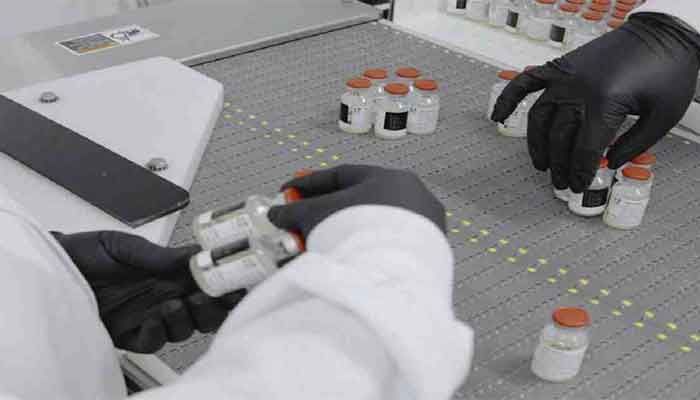
Antibody Drugs Are No Cure But Seem Promising for COVID-19
Desk Report
Published: 10 Oct 2020, 08:44 am

They are not cures, and as President Donald Trump has indicated, it is not possible that everybody will be able to get them, but new antibody drugs like the one offered to Trump are among the most effective medicines being studied for the treatment and prevention of coronavirus infections.
Eli Lilly and Regeneron Pharmaceuticals Inc. are asking the US government to allow their antibody drugs to be used in an emergency manner to help the immune system eliminate the virus. The drugs are still being checked; their safety and efficacy are not yet understood, reports AP.
Trump is among fewer than 10 individuals who, without enrolling in a study, were able to use the Regeneron one under "compassionate use" rules.
How do antibody work?
When an infection happens, antibodies are proteins that the body makes; they bind to a virus and help it be removed.
Vaccines imitate an infection to spur the production of antibodies, but it can take many weeks for the most successful antibodies to develop after a vaccine or natural infection.
Experimental drugs are concentrated forms of particular antibodies that in laboratory and animal experiments performed best against the coronavirus and, in principle, they start helping immediately.
Difference between drugs
Regeneron is using two antibodies to enhance the chances its therapy will work even if the virus evades one. The company made a successful Ebola combo antibody treatment this way.
Two separate antibodies are being tested individually and in combination by Lilly-one with the Canadian company AbCellera and another with a Chinese company, Junshi Biosciences. GlaxoSmithKline and Vir Biotechnology Inc. are both researching similar medicines, which claim they have developed antibodies to survive longer than they normally do.
Amgen, Adaptive Biotechnologies and the Singapore biotech company Tychan Pte Ltd. also have studies underway.
Availability
A: Eli Lilly and Regeneron have asked the Food and Drug Administration for emergency authorisation. During public health emergencies the FDA can speed drugs to market based on a lower standard of evidence than is normally required.
It is only necessary for drugmakers to prove that the expected benefits of their treatments outweigh the risks of COVID-19 care.
The FDA does not have a deadline to decide on the products, but it normally takes decisions within days or weeks on certain emergency applications.
First receivers of drugs
As several trials include newly infected individuals to see whether early treatment will reduce the risk of being sick, researchers are also trying to identify the best candidates for antibody treatment.
Other studies aim at avoiding serious illness, complications or death in hospitalized patients.
These drugs are also being studied by researchers to try to avoid infection among people at high risk of infection, such as health workers, COVID-19 housemates, and nursing home workers and residents.
Will there be enough for everyone?
Regeneron says it has enough doses for approximately 50,000 patients and expects 300,000 available within the next few months. Under a USD 450 million contract, the federal government has agreed to buy initial supplies of Regeneron’s drug and distribute them at no cost to US patients.
Lilly says it expects to have 1 million doses this year of the single antibody that it submitted to FDA.
However, the company’s research has focused on a combination of two antibodies to treat COVID-19 patients. Lilly said it expects to have just 50,000 doses of that combo this year.